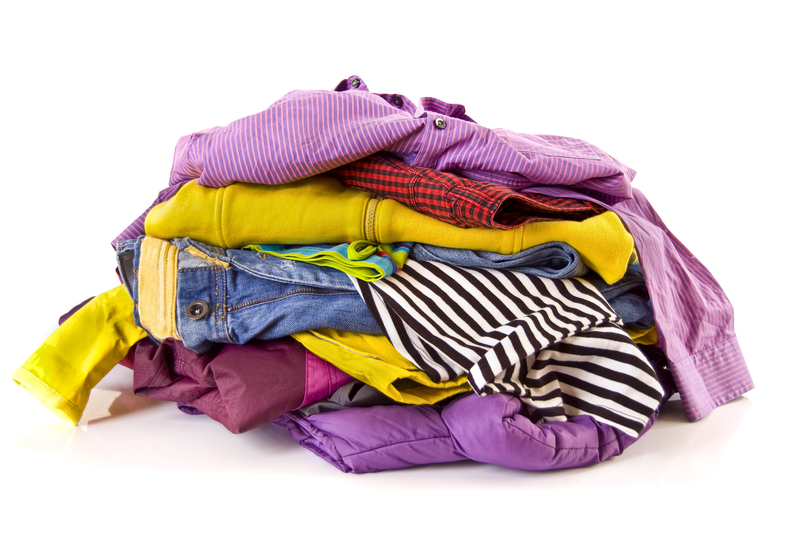Avoid Hidden Fees When Disposing of Bulky Waste Items: Your Comprehensive Guide
If you've ever tried to get rid of an old couch, broken appliance, or a mountain of household junk, you know that disposing of bulky waste items can be tricky and costly. Many homeowners are caught off guard by hidden fees, unexpected surcharges, and confusing municipal requirements. Don't let these extra costs sneak up on you!
This comprehensive guide will walk you through all the steps and strategies to avoid hidden fees when disposing of bulky waste items. You'll learn about common fee traps, smarter disposal options, how to understand municipal rules, and expert tips to keep your wallet safe during your next big cleanout.

Table of Contents
- What Exactly Is Bulky Waste?
- Why Do Hidden Fees Exist in Bulky Waste Disposal?
- Common Hidden Fees to Watch Out For
- How to Dispose of Bulky Waste Items Without Extra Fees
- Understanding Your Municipality's Bulky Waste Disposal Rules
- Alternative Options to Avoid Bulky Waste Surprises
- Bonus Tips: Save Money on Bulky Waste Pickup
- Frequently Asked Questions
What Exactly Is Bulky Waste?
Bulky waste includes large household items that can't fit in your regular trash bin. These may include, but are not limited to:
- Furniture (sofas, mattresses, armchairs, desks)
- Large appliances (refrigerators, washing machines, ovens)
- Construction debris (plasterboard, old doors, window frames)
- Outdoor equipment (barbecues, lawn mowers, trampolines)
- Electronic waste (old TVs, computers, printers)
While some items like tires, car batteries, and hazardous waste require special treatment, many bulky waste items are simply too large for standard municipal collection and require special handling.
Why Do Hidden Fees Exist in Bulky Waste Disposal?
Most cities and private haulers charge for bulky waste removal because it entails extra costs:
- Labor: More workers and time are needed to lift, sort, and transport heavy items.
- Transport: Larger trucks and more trips increase fuel and maintenance costs.
- Recycling/Disposal Fees: Many materials require special recycling or pay-by-weight dumping fees at landfills.
- Hazardous Item Processing: Items with chemicals, refrigerants, or electronics require expensive, regulated handling.
Municipalities often pass these expenses on to residents through a mix of removal fees, per-item surcharges, or landfill charges. Private junk removal companies may tack on additional, hard-to-detect costs. This is why it's so important to read the fine print before booking a service!
Common Hidden Fees to Watch Out For
Bulky waste disposal can be a minefield of unexpected fees. Here are the most common charges to watch for:
- Per Item Fees: Many municipalities charge extra for certain items (e.g., $30 for a mattress, $25 for a refrigerator).
- Overweight Surcharges: Loads above a certain weight (often 200 lbs) may trigger steep per-pound or per-ton fees.
- Preparation Fees: If you don't disassemble an item or carry it to your curb, you could be charged for labor.
- Freon Removal: Appliances containing refrigerant (fridges, AC units) may have a mandatory removal charge.
- Stairs/Access Charges: Private removal services often add fees if items must be carried up/down stairs or a long distance.
- Permit Fees: Some cities require paid permits for placing large items on the curb.
- Minimum Load Fees: Junk haulers may impose a minimum fee, even if you only have one item.
- Environmental Fees: Electronics, tires, or hazardous items often trigger disposable environmental surcharges.
Always request a clear, itemized quote for your disposal service before agreeing to any pickup.
How to Dispose of Bulky Waste Items Without Paying Hidden Fees
To keep bulky waste disposal affordable and transparent, use these actionable tips:
1. Audit What You're Throwing Out
Start by making a detailed list of all your bulky items. Some municipal or junk removal services charge per item, so being precise helps you avoid surprises.
2. Check Free Pickup Days
Many towns offer free bulk item pickup or neighborhood "clean-up days" once or twice a year. Schedule your disposal accordingly to avoid fees.
3. Disassemble Large Items
Reduce your costs by taking apart furniture, beds, or play sets. Smaller pieces take up less space, are easier to handle, and may qualify for free removal.
4. Prepay for Stickers/Tags
Some cities sell "bulky item stickers" at designated locations. Buy ahead, affix to your items, and place them on the curb. This transparent system eliminates hidden charges.
5. Drop Off at Your Local Landfill or Transfer Station
If you have a truck or can borrow one, most local facilities allow resident drop-offs--often for a flat fee or included with your city taxes. Always ask about price before unloading.
6. Donate or Sell Usable Items
Charities, thrift stores, and online marketplaces are great resources. You might even get free pickup, saving disposal fees and giving your items a second life.
7. Read the Fine Print with Private Junk Removal Companies
If you hire a junk removal service, ask for a complete, written estimate including all possible fees:
- Labor time
- Hauling distance
- Weight limits
- Disposal surcharges
- Any "extra" or environmental fees
Understanding Your Municipality's Bulky Waste Disposal Rules
The single best way to avoid hidden fees when disposing of bulky waste is to know your local regulations.
- Visit your city or county website: Search for "bulky item pickup," "waste disposal," or "bulk trash day."
- Check your regular trash service statement or annual mailed calendar.
- Call your Public Works Department. Don't be shy--ask about any and all fees, limitations, and procedures.
Key information to obtain:
- What items qualify as "bulky" and are eligible for pickup?
- How many bulky items can you put out at once, and how often?
- Is there a fee per item, per load, or a flat annual charge?
- Do you need to schedule a pickup, or a permit/tag?
- Are there special rules for appliances, electronics, or hazardous items?
Every community is different, so make sure you're following your own local guidelines. Ignorance can be expensive!
Alternative Options to Avoid Bulky Waste Surprises
Not every solution costs money. These creative options can help you avoid hidden charges while being environmentally responsible:
Community Giveaway or Swap
Host a curbside "free day" or post in local online groups. You'd be surprised what neighbors want to haul away--saving you money and effort.
Retailer Take-Back Programs
Many appliance, mattress, or furniture stores offer free old item removal when you buy new. Ask before you buy!
Scrap Metal Recyclers
Large metal items, old grills, or appliances (with refrigerant removed) may be accepted for free or even net you a few dollars.
Nonprofit Partnerships
Habitat for Humanity, Goodwill, Salvation Army, and other non-profits often accept donations of quality furniture or working appliances, sometimes with free pickup.
Bulk Waste Events
Many cities offer periodic drop-off events for electronics, mattresses, tires, or construction debris. Check your local recycling calendar.
Rent a Dumpster (with Caution!)
If you have a lot of debris, renting a dumpster can be cost-effective, but--watch for overage charges, weight restrictions, and prohibited items.
Bonus Tips: Save Money on Bulky Waste Pickup
- Plan Ahead: Waiting for neighborhood pick-up or event days can save hundreds.
- Group with Neighbors: Split the costs of private hauling with your street or HOA.
- Ask for Discounts: Some companies offer senior, veteran, or multi-item discounts--always ask.
- Maximize Each Pickup: Dispose of the maximum number of items allowed per scheduled pickup to avoid additional service calls.
- Read Reviews: Only use trusted, well-rated junk removal companies to avoid shady billing practices.
Frequently Asked Questions About Avoiding Hidden Bulky Waste Fees
Is it cheaper to hire junk removal or use city bulky item pickup?
City-run pickups are usually cheaper or even free (when offered). Private junk haulers are faster and easier but often come with more hidden costs. Always compare total pricing before booking!
Are all large household items considered bulky waste?
Not always. Some items have separate disposal systems (e.g., electronics, hazardous waste, tires). Check your municipal guidelines for what's included in "bulky waste."
How can I keep my costs down for appliance removal?
Try a few strategies:
- Ask your retailer if they offer free haul-away for your old appliance
- Remove doors from fridges and washers to prep for pickup
- Recycle metal appliances if allowed at your local scrap yard
- Schedule removal for free bulk waste days
Will my city fine me if I leave bulky items on the curb without following procedures?
Often, yes. Many cities impose fines or will NOT collect bulky waste without proper tags or scheduling. Check your city's rules to avoid penalties.
What's the greenest way to dispose of bulky waste?
Donate usable items, recycle metals, or check if your city offers "reuse days." Anything that keeps materials out of the landfill is the best environmental choice!

Conclusion: Dispose Smart to Avoid Hidden Bulky Waste Fees
Getting rid of bulky household waste doesn't have to come with unpleasant surprises. By knowing your local guidelines, planning ahead, and comparing disposal options, you can clear clutter, safeguard your budget, and even help neighbors or local charities in the process.
For more information, always consult your official municipal website or contact local waste management professionals. The more informed you are, the less you'll pay in hidden fees when disposing of bulky waste items--letting you enjoy a cleaner home and a happier wallet!
Ready to clear out your bulky junk? Use these tips to stay fee-free!
